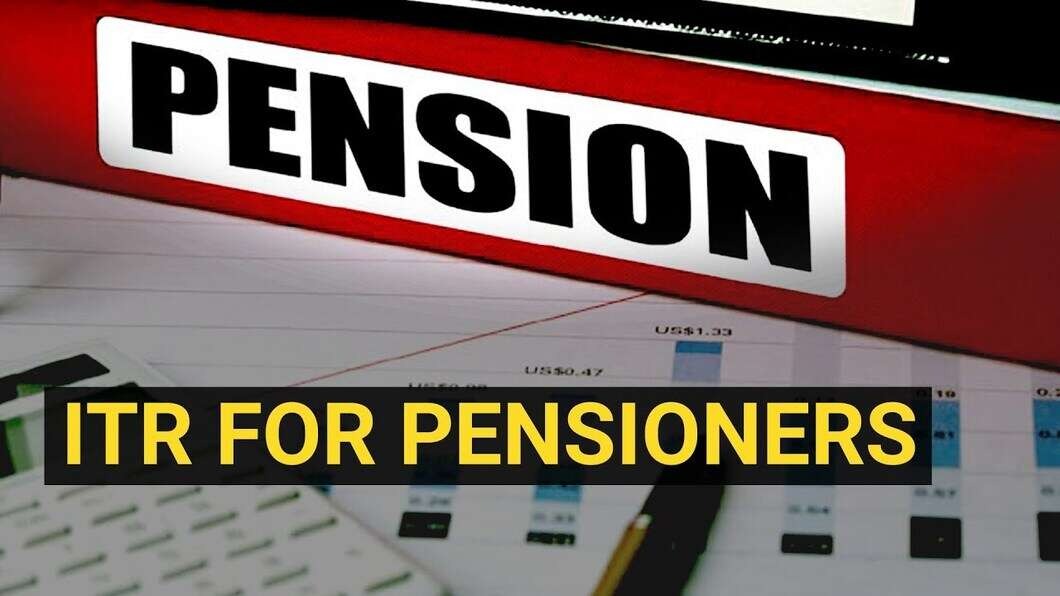
No ITR Needed for Pensioners Earning Up to ₹39,500 Monthly Under New Tax Rules
₹75,000 Standard Deduction Brings Taxable Income Below ₹4 Lakh
Relief Applies to Senior Citizens with Only Pension and Bank Interest Income
By Our Legal Reporter
New Delhi: November 24, 2025:
The Government of India has introduced a major relief for pensioners under the new tax regime, effective from Assessment Year (AY) 2026–27. According to the latest advisory, senior citizens aged 75 years or above who earn only pension and interest income from the same bank will not be required to file an Income Tax Return (ITR) if their monthly pension is up to ₹39,500.
Also Read: Justice Surya Kant: India’s 53rd Chief Justice Highlights Human Side of Judging
Background of the Rule
The announcement comes as part of ongoing efforts to simplify tax compliance for senior citizens. Traditionally, pensioners were required to file ITR even if their income was modest. However, under the new rules, pensioners with limited income sources are exempted, reducing paperwork and stress for elderly taxpayers.
The calculation is straightforward:
Also Read: Delhi High Court Protects Tesla Trademark: Bars Indian Firm from Using ‘Tesla’ Name for EVs
- Annual pension income: ₹4,74,000 (₹39,500 × 12 months)
- Standard deduction: ₹75,000
- Net taxable income: ₹3,99,000
Since the taxable income is below ₹4 lakh, filing ITR is not mandatory.
Who Benefits from This Rule
The exemption applies only to a specific category of taxpayers:
Also Read: Supreme Court Clears $570M Settlement in Sandesara Brothers’ $1.6B Bank Fraud Case
- Resident senior citizens aged 75 years or above
- Income must be solely from pension and interest from the same bank where pension is credited
- No other sources of income (like rent, business, or capital gains) are allowed under this exemption
This ensures that the relief is targeted at genuinely dependent pensioners, not those with multiple income streams.
Why This Matters
For millions of elderly citizens, filing ITR is a complex process involving digital portals, OTPs, and verification. Many struggles with technology or depend on accountants. By exempting them, the government has:
- Reduced compliance burden
- Ensured dignity for senior citizens
- Simplified tax administration
Tax experts say this move will benefit pensioners who rely solely on their retirement income and bank interest, making life easier for them.
Also Read: Allahabad High Court Upholds AO’s Decision: ₹122.31 Lakh Cash Deposits Treated as Business Sales
Exceptions and Limitations
While the rule is a relief, it comes with clear boundaries:
- If annual income exceeds ₹4 lakh after deductions, ITR filing becomes mandatory
- If pensioners earn from other sources (like property rent or investments), they must file ITR
- The exemption applies only under the new tax regime, not the old regime
This means pensioners must carefully evaluate their income sources before assuming exemption.
Industry and Expert Reactions
Chartered accountants and financial advisors have welcomed the move, calling it a progressive step. “This exemption recognizes the challenges faced by senior citizens and reduces unnecessary compliance,” said one tax consultant.
However, some experts caution that pensioners should still consider filing ITR voluntarily, even if exempt, to maintain a record for loans, visas, or financial documentation.
Also Read: Supreme Court Safeguards MBBS Degree Despite Cancelled ST Certificate, Bars Future Quota Benefits
Broader Context
The exemption is part of India’s broader tax reforms aimed at simplifying compliance. In recent years, the government has:
- Introduced faceless assessments to reduce harassment
- Expanded the new tax regime with higher standard deductions
- Focused on digital filing and faster refunds
For pensioners, these reforms collectively reduce stress and improve transparency.
Practical Example
Consider Mr. Sharma, a 76-year-old retired government employee:
Also Read: Punjab & Haryana High Court Slams State Over Judges’ Housing: Calls Failure ‘Strange and Shocking’
- Pension: ₹35,000 per month
- Bank interest: ₹3,000 per month from the same bank
- Annual income: ₹4,56,000
- Standard deduction: ₹75,000
- Net taxable income: ₹3,81,000
Since his taxable income is below ₹4 lakh, he is exempt from filing ITR under the new rules.
Conclusion
The new rule exempting pensioners earning up to ₹39,500 per month from filing ITR is a landmark relief for senior citizens. By recognizing age, limited income, and dependence on pension, the government has simplified tax compliance and reduced stress for elderly taxpayers.
Also Read: Delhi High Court Upholds ED’s Expansive Search Powers Under PMLA: Non-Accused Premises Can Be Raided
While pensioners must remain cautious about exceptions, the overall impact is positive, ensuring that India’s tax system remains fair, humane, and efficient.
Keywords for SEO (Google + ChatGPT)
- No ITR for pensioners India 2025
- ₹39,500 monthly pension tax exemption
- Senior citizen ITR exemption new tax regime
- Pension income tax rules AY 2026–27
- Family pension ITR filing rules India
- Income tax standard deduction ₹75,000
- ITR exemption for senior citizens above 75
- Pension and bank interest tax exemption
- Simplified tax rules for pensioners India
- Pensioners income tax relief 2025
Also Read: ED Attaches ₹108 Crore Gurugram Property of Vatika in Builder-Investor Fraud Case